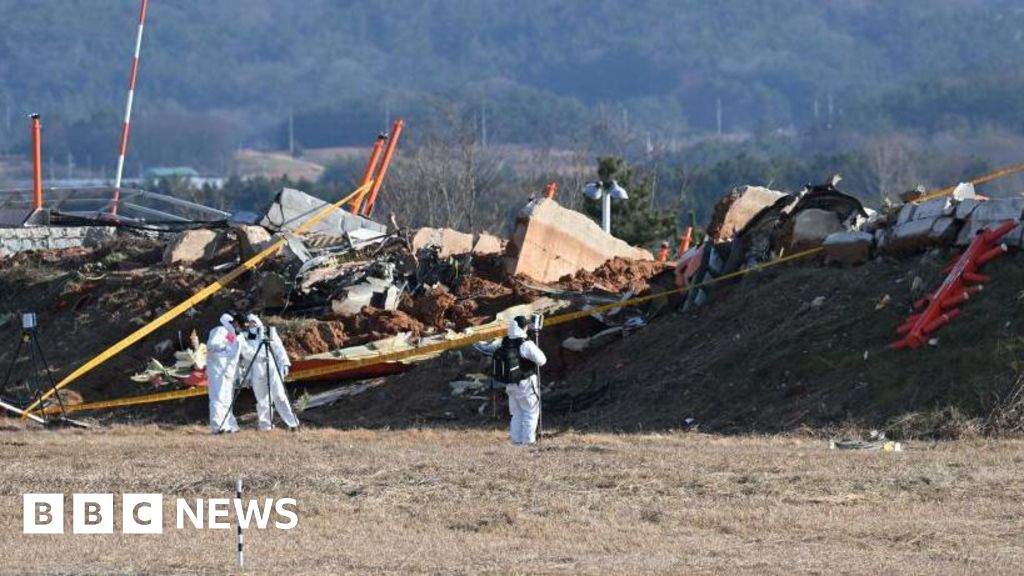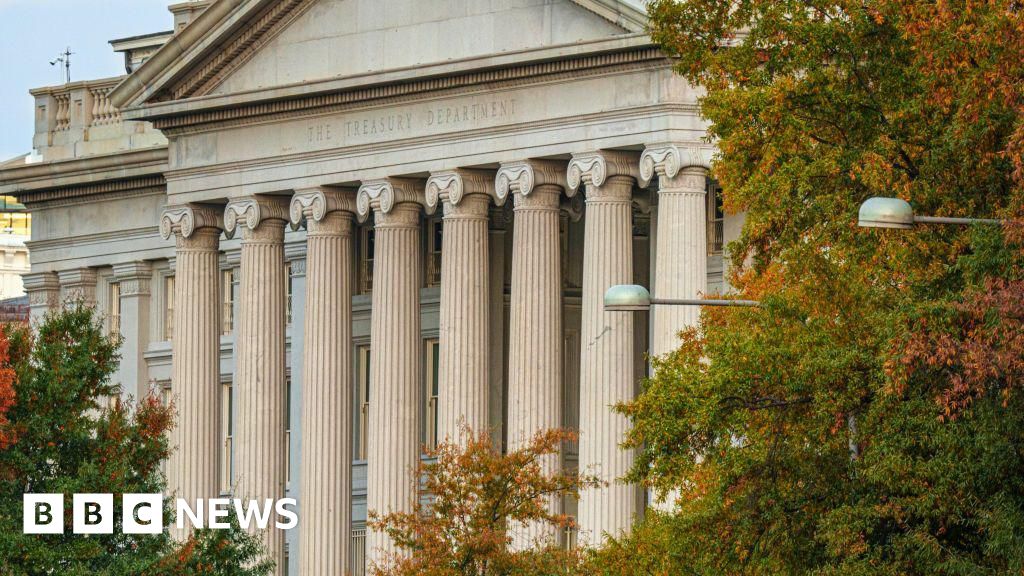Work has begun to cut down six trees in the Dark Hedges, the Northern Ireland beauty spot made famous by the hit series Game Of Thrones.
Contractors arrived this morning at the avenue of distinctive gnarled beech trees on the Bregagh Road in County Antrim, which became one of the country's most-photographed sites after featuring as the "Kingsroad" in the second season of the global hit series.
The imposing tunnel of beeches remains a major attraction for Games Of Thrones fans, with tours arriving daily from Belfast.
A recent report found that most of the trees are in poor condition, and there have been fears for the safety of visitors.
Six dying and potentially dangerous trees will now be removed and remedial work carried out on several others as part of the project, which will see the site temporarily closed to visitors.
"The main thing is visitor safety," Graham Thompson, CEO of Causeway Coast and Glens Heritage Trust, told Sky News.
"We've got trees that are 250 years old, which is 50 years above their life expectancy, and they constantly need work, they constantly die, so it's necessary to do remedial work.
"Branches could fall, trees could fall, so it needs to be managed in a considerate way. There will be six trees removed.
"But it will be a slice by slice basis, you won't see somebody with a big axe shouting timber. It's difficult, we're trying to chop down as little as possible."
The Dark Hedges was created when 150 trees were planted to form a grand entrance to Gracehill House around 1775 by the landowner James Stuart.
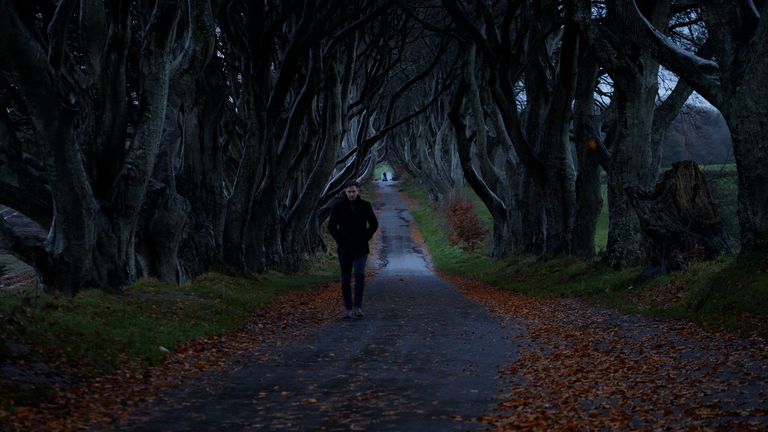
Several of them have been brought down by storms in recent years and just 86 currently remain.
According to the Woodland Trust, beeches are considered "ancient" at the age of 225, and the Dark Hedges trees are now around 250 years old.
The Causeway Coast and Glens Heritage Trust says that the trees' "advanced age has caused them to grow in an unusual, twisted manner creating the universally recognised atmospheric phenomenon we see today".
The news of the trees' removal has caused dismay among Game Of Thrones fans, and has been widely reported.
"Splinter is coming" was how The New York Times headlined its coverage of the trees' removal, a pun on the show's famous line "winter is coming".
Chinese and American visitors were at the Dark Hedges today, bemused at the sight of chainsaws and television news crews.
"I mean it's definitely a bummer, but it's better than someone being hit by a falling tree", said one man, part of a group visiting from California.
Read more from Sky News:
Cornwall hit by 2.7-magnitude earthquake
Nurse describes 'horrific' fatal crash with life-changing injuries
Boris Johnson 'bamboozled' by COVID science
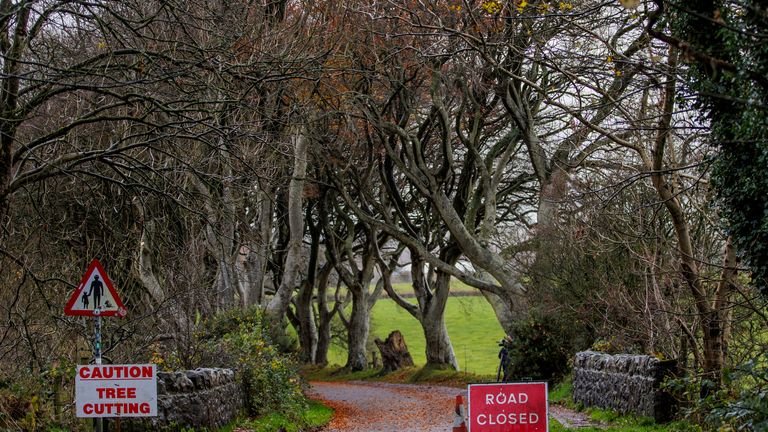
Northern Ireland's Department of Infrastructure said in a statement that it had "commissioned an independent specialist survey which found that 11 trees, out of a total of 86, along this route were in a poor condition and could pose a potential risk to the public... given the urgency of the work required, arrangements have now been made to remove six of the trees (stump retained) and carry out remedial work to four trees, to reduce the risk to the wider public."
"This decision has not been made lightly and, whilst the amenity value afforded by the corridor of trees is acknowledged, the safety of road users is paramount."
During Game Of Thrones' run, the HBO production filmed at more than 20 sites around Northern Ireland, including the Dark Hedges.
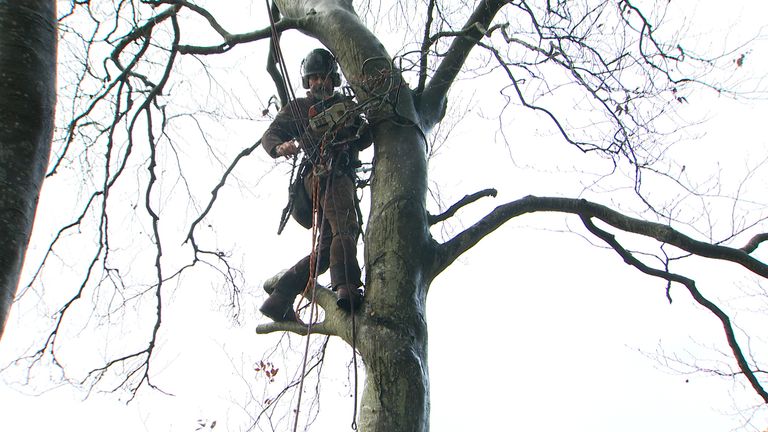
The road featured in the first episode of the second season as Ayra Stark, disguised as a boy, makes her escape down the Kingsroad in a cart.
The rural site's popularity has caused major traffic disruption in recent years, and the Save the Dark Hedges campaign group has said the surge in footfall has exacerbated the damage to the trees.
Campaigner Bob McCallion has called for remedial work for years, and says the authorities have been neglectful in maintaining the site over the past decade.
"There's still a lot of life left in the trees", he said, "if we get the right attention and regular maintenance for them, they can last for quite a few years more, but you don't want a tourist trap to become a death trap. And that's what's been happening here for quite a number of years."
The condemned trees will be removed delicately in pieces, rather than major felling. No decision has yet been made on what any resulting timber will be used for.
 (1).png)


